Advanced Accounting Report: IFRS Implementation in Post-Harmonization
VerifiedAdded on 2023/01/16
|6
|421
|94
Report
AI Summary
This report critically reviews the implementation of International Financial Reporting Standards (IFRS) in the post-harmonization era, examining whether the intended purpose of global harmonization of financial reporting standards has been achieved. It analyzes the challenges in implementing IFRS globally, considering both emerging and developed economies, and the differences between formal adoption and actual reporting practices. The report explores the impact of political and economic forces on the local context and the global convergence of IFRS. The analysis is based on prescribed literature and relevant research articles, providing insights into the complexities of IFRS adoption and its fit within the institutional theoretical perspective.
1 out of 6
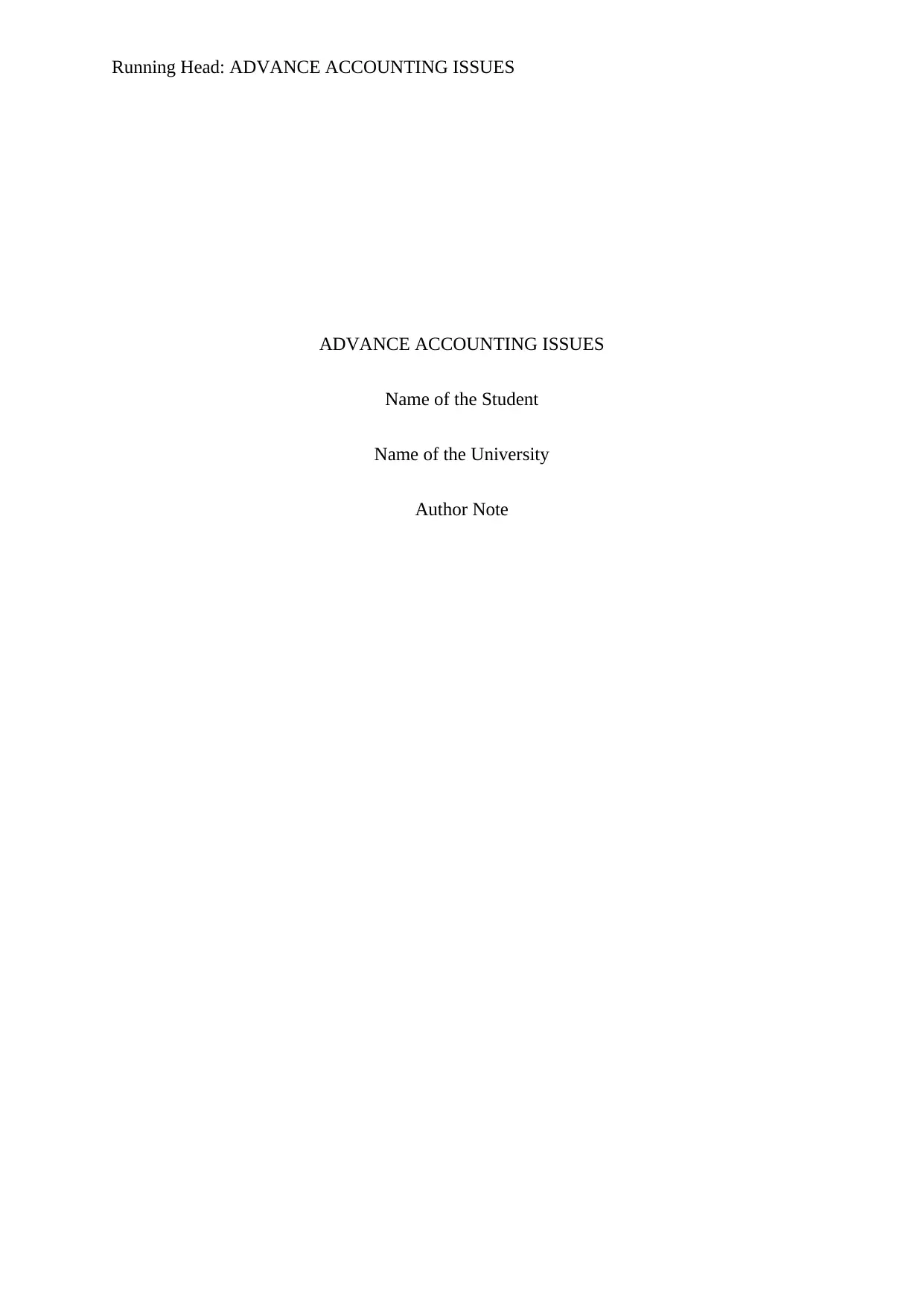
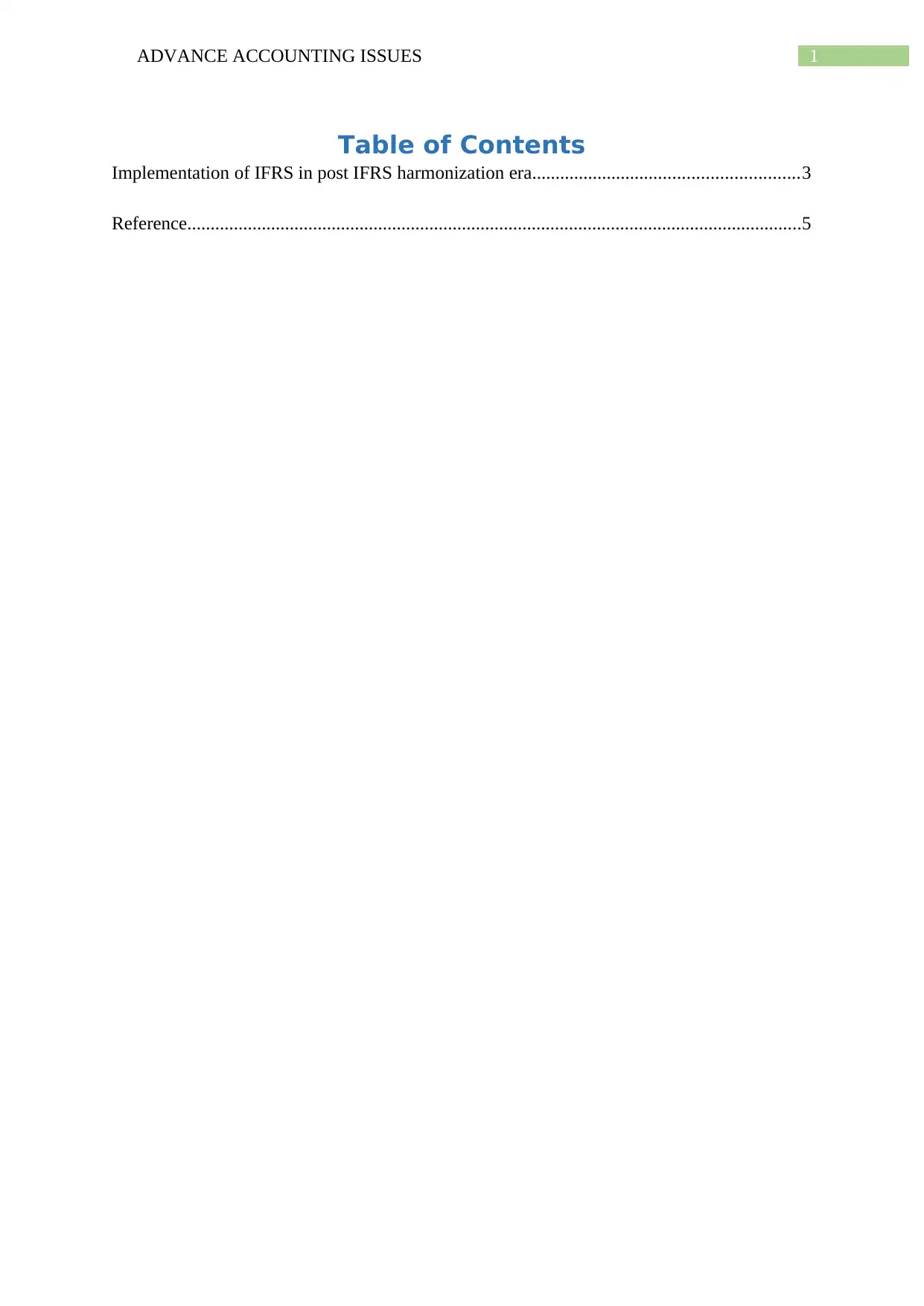
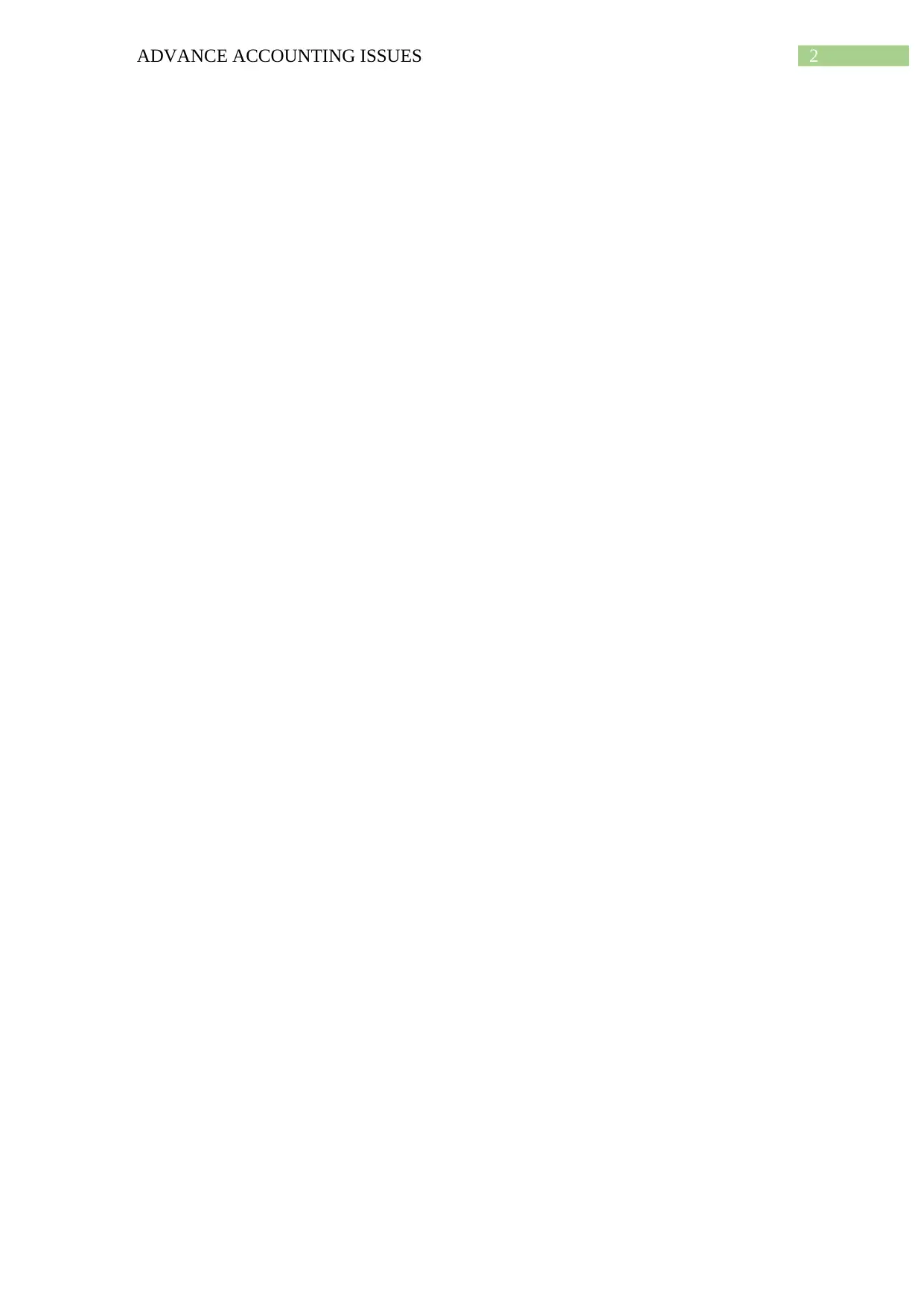

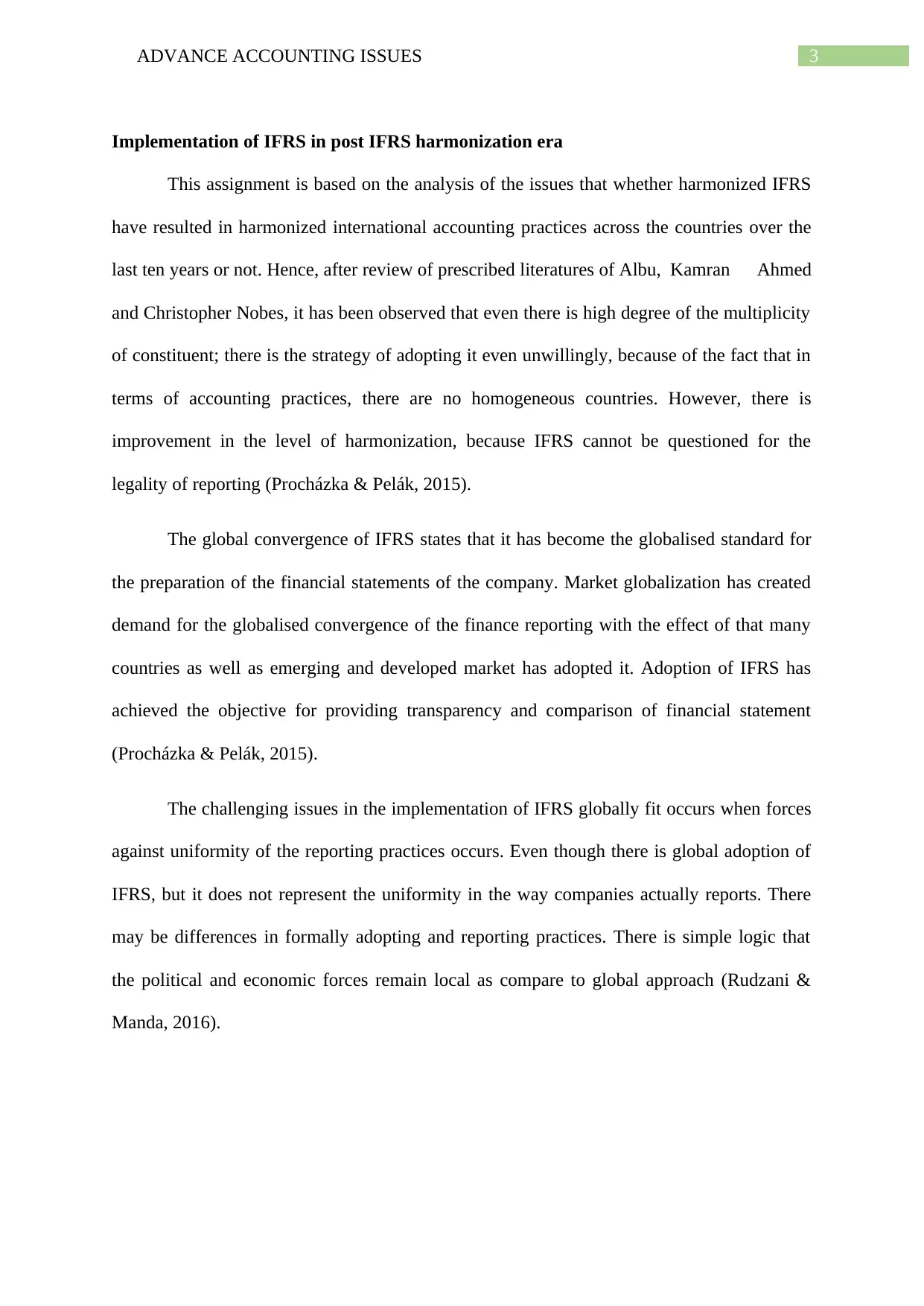
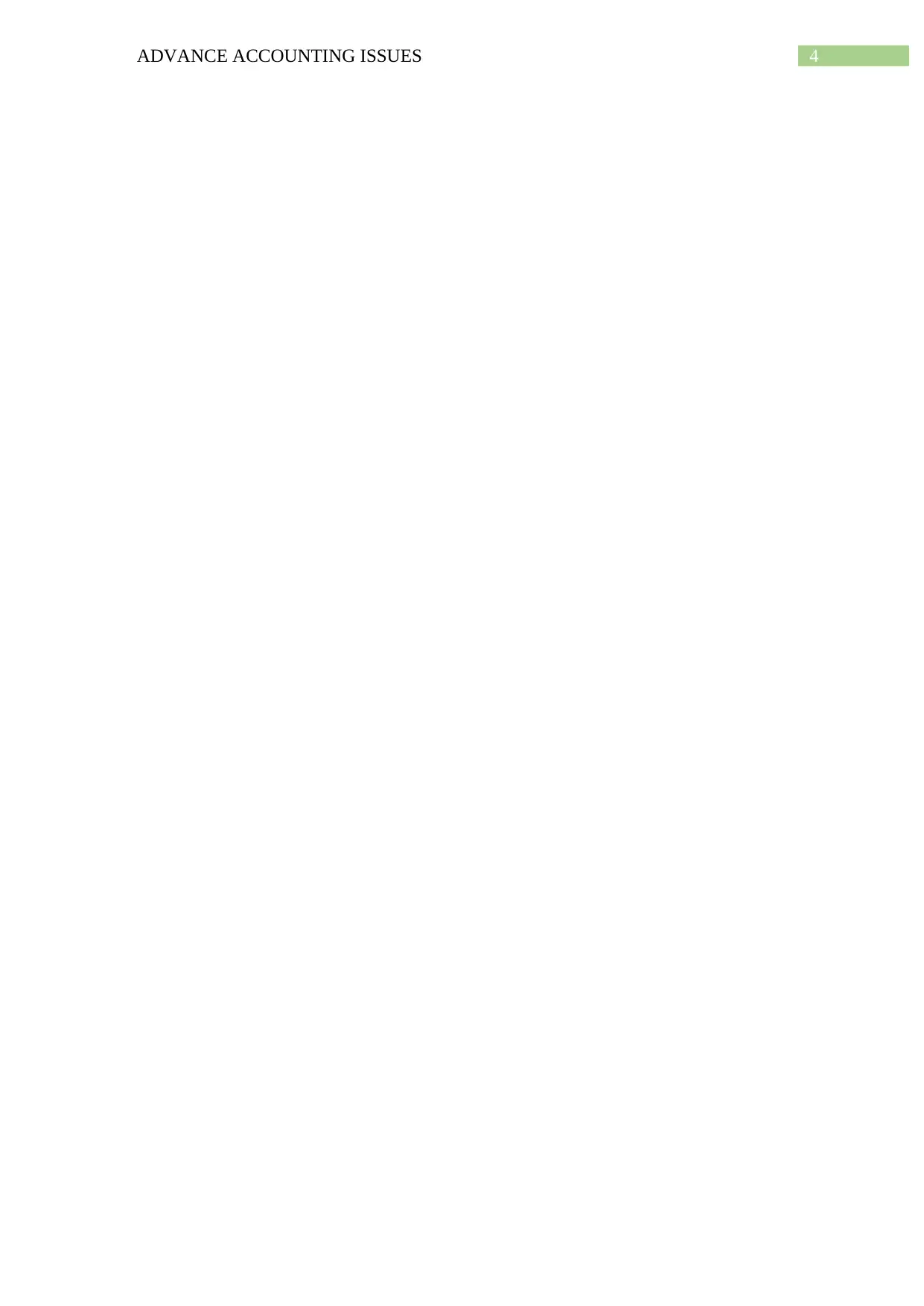
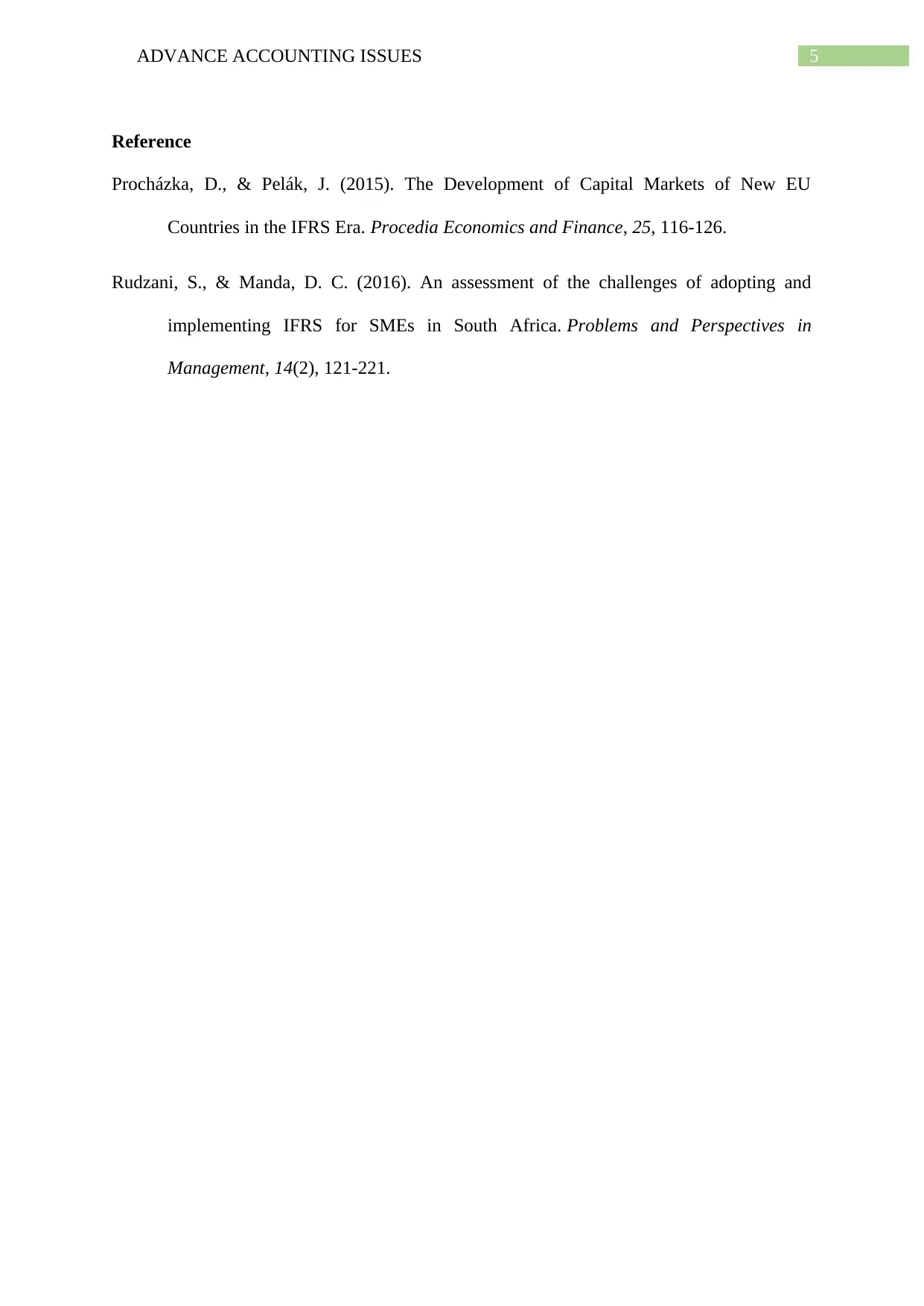





![[object Object]](/_next/static/media/star-bottom.7253800d.svg)